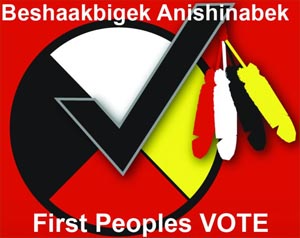Fair Elections Act may disenfranchise Aboriginal voters
The Harper Government passed the Fair Elections Act in 2015 with the objective of decreasing voter fraud by eliminating the use of Elections Canada Voter Identification Cards for identification when voting. The government argued that there are 39 forms of authorized ID when voting. These forms range from Canadian passports and birth certificates to student ID cards, credit or debit cards, and utility or bank statements.
In addition to explicitly prohibiting the use of Voter Identification Cards, the Fair Elections Act ended the practice of “vouching” in which voters with acceptable ID could attest to the identity and addresses of those who lacked it. It can be argued that many Aboriginals used this form of voter identification and will be greatly affected by its removal.
Many groups argued that the Fair Elections Act and this legislative provision could turn people away from the polls and hence unfairly disenfranchise some voters. Recently, the Council of Canadians and the Canadian Federation of Students asked the Ontario Superior Court to grant an interim injunction against this aspect of the legislation as tens of thousands of eligible voters could be turned away at the polls when coming to cast their ballot. These two groups argued that Voter Identification Cards, which are no longer, accepted for identification purposes. These groups would include students, Aboriginals, elderly people living in care homes and the homeless.
There are no hard numbers on the number of Canadians to be affected but according to a July 2, 2015 article in the Globe and Mail, about four million Canadians do not have a driver’s license, which is the only piece of government ID that includes a name, photo, and address. Without that, registered voters must combine ID with a utility bill or other acceptable mail that shows their current address.
Furthermore, in the 2011 election, Elections Canada ran a pilot program that mailed Voter Identification Cards to about 900,000 households. When about 400,000 voters used the cards as official ID on Election Day, Elections Canada considered the program a success and planned to offer the option to all Canadians for the October 2015 election.
On July 17, 2015, the Ontario Superior Court of Justice denied the request for an interim injunction against the use of Voter Identification Cards as ID for the October 2015 federal election. Judge Stinson stressed that he was not making a definitive ruling on whether these provisions violate the Charter of Rights and Freedoms and stated that the Court will address these issues when it hears the case after the fall vote, according to the July 17, 2015 article in the Globe and Mail.


